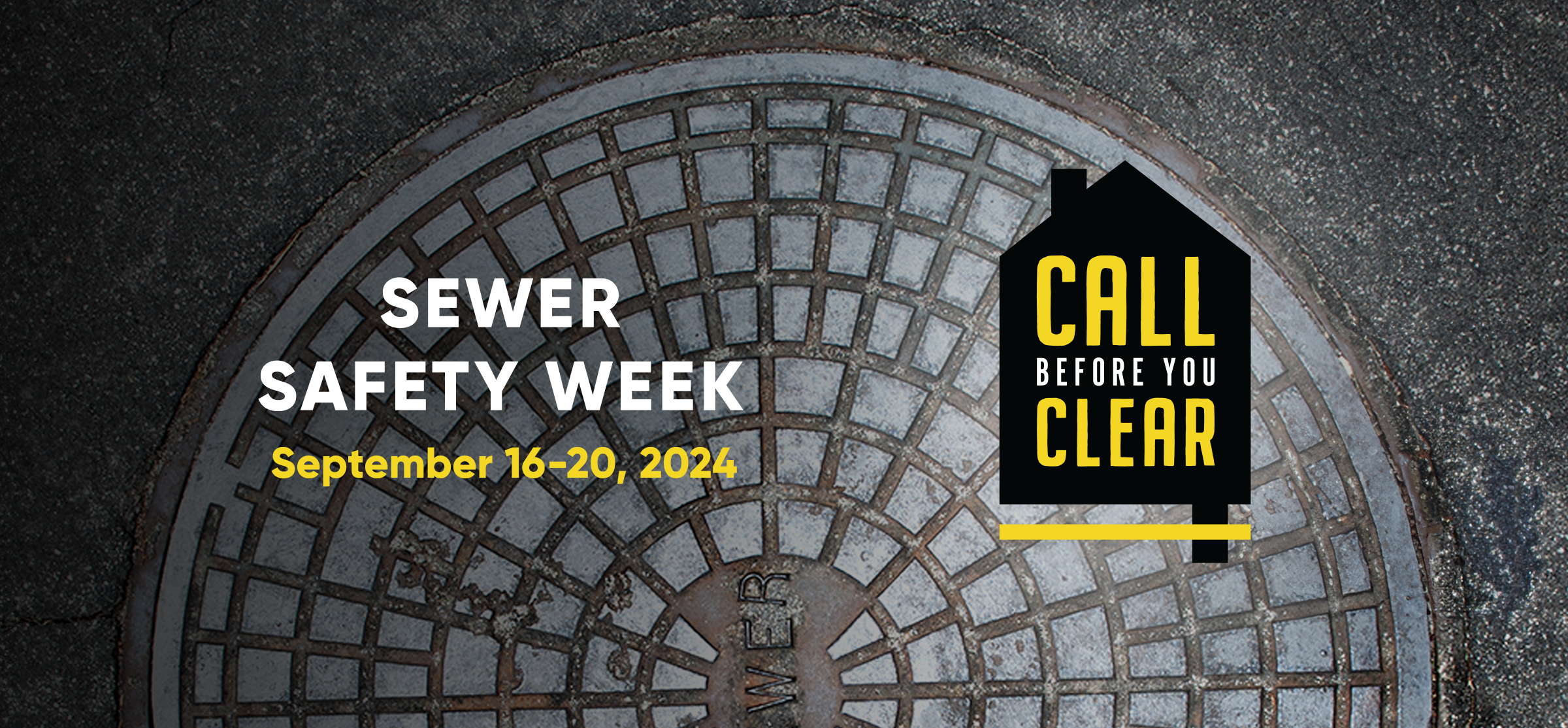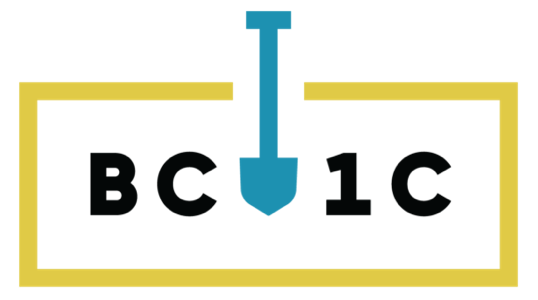
Always Call Before You Clear!
BC 1 Call is launching its first Sewer Safety Awareness Week this fall (September 16 – 20, 2024), with the following founding supporters: FortisBC, WorkSafe BC, BC Water & Waste Association, Public Works Association of BC and the BC Municipal Safety Association.
Why the campaign and impressive line-up of supporters, you may ask? The answer is simple: Safety. Understandably, unblocking a sewer line outside your home or building is something most people just want to resolve as quickly as possible. But few know that a gas line may lie within the sewer at the point of blockage, having been laid there years ago by cross-boring trenchless technology. This lack of awareness is dangerous, but the risk can be reduced if you call BC 1 Call for a “cross bore check” before you clear the blockage.
FortisBC’s short video explains:
- How a cross-bore threading of a gas line through a sewer line may have occurred, and
- Why it is critical to call BC 1 Call before attempting to remove the blockage and request a cross bore check, which will be treated as an emergency by FortisBC, who will dispatch a representative to the site as soon as possible, often within two hours.

When doing your due diligence and reaching out to BC 1 Call, you will be protecting yourself and those around the worksite. When dispatched, the FortisBC representative will investigate nearby areas looking for evidence of broader cross bore construction to be immediately addressed. Once FortisBC ensures the area is clear of cross bore cases, they will update their records accordingly for future requests for cross bore checks in the area.
For years, FortisBC, in collaboration with local governments, has proactively reduced the instances of gas lines that cross through sewer mains. Working together, many locations of cross bore situations have been identified and gas lines relocated.
“Local government collaboration and support is critical in reducing the number of cross-bore situations. This safety initiative, supported by WorkSafe BC, is a great example of everyone coming together to reduce risk of injury in a timely and open way.” - Jimmy Yip, Damage Prevention Manager, FortisBC
Technology is used to the best extent possible, with the majority of cases of cross bore situations revealed through the use of municipal routine inspection video footage, where available, or the overlay of municipal GIS infrastructure maps on FortisBC gas line mapping data.
- FortisBC works with large municipalities that utilize video cameras while conducting routine inspection activities of their systems. Footage is reviewed carefully to determine whether gas lines could be intersecting municipal infrastructure.
- For communities where video footage isn’t available, but digital sewer GIS data is (either via open sources and/or provided on request from the local governments), FortisBC rules out a number of places where cross bore installation would not have been used (e.g. where a gas line was installed from across the street and runs parallel to, rather than across, the sewer line). The process involves overlaying FortisBC' GIS gas line maps on those of sewer drainage layers.
- For smaller B.C. towns that do not have either video inspection footage or GIS information, manual processes are required (e.g. a review and comparison of municipal paper-based mapping information with FortisBC's own gas line mapping data).
- Finally, in cases where even paper-based mapping information is either not available or not up to date, FortisBC confirmed cross-bore cases by physical inspection of the area.
Unfortunately, instances of cross bore gas lines through local government mains still exist. FortisBC is called out every year, not just in advance to locate lines, but also after gas lines have been inadvertently hit. This often happens when homeowners fail to call BC 1 Call and request at cross bore check.
“FortisBC’s statistics help demonstrate the importance of an annual BC Sewer Safety Awareness Week Campaign. We all need to work together to eliminate the risk of cross-bore gas line instances, follow safe digging instructions and safe digging best practices. At the heart of it all is use of BC 1 Call, and the identification of the request as one for a cross-bore check.” - Jimmy Yip, Damage Prevention Manager, FortisBC
Total number of cross bore priority tickets received between 2019 - May 2024 by FortisBC:
| 2019 | 2020 | 2021 | 2022 | 2023 | YTD May 2024 |
| 213 | 300 | 209 | 136 | 148 | 47 |
Source: Data as provided by BC 1 Call and received by FortisBC via the BC 1 Call process.
Over the last four years, 47% of gas line damage incidents related to work done on sewer infrastructure occurred due to the failure to contact BC 1 Call, while 85% of such incidents were due to the failure to follow safe digging practices; these percentages include a number of sewer cross bore cases.
Request from BC 1 Call and Sewer Safety Awareness Week Founding Supporters:
Help raise awareness of BC’s inaugural Sewer Safety Awareness Week (September 16-20, 2024) by
- Liking or sharing this blog post;
- Giving a shout-out to Sewer Safety Awareness Week on your social media channels; and
- Talking to your teams at safety meetings about this safety issue and the requirement to submit a BC 1 Call request for a “cross bore check” before clearing sewer lines.

You must be logged in to post a comment.